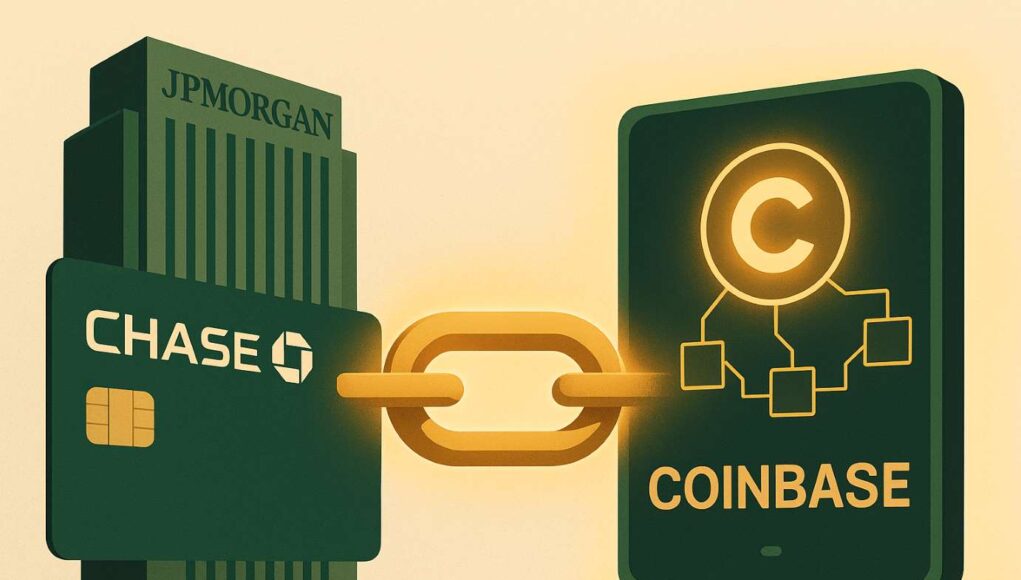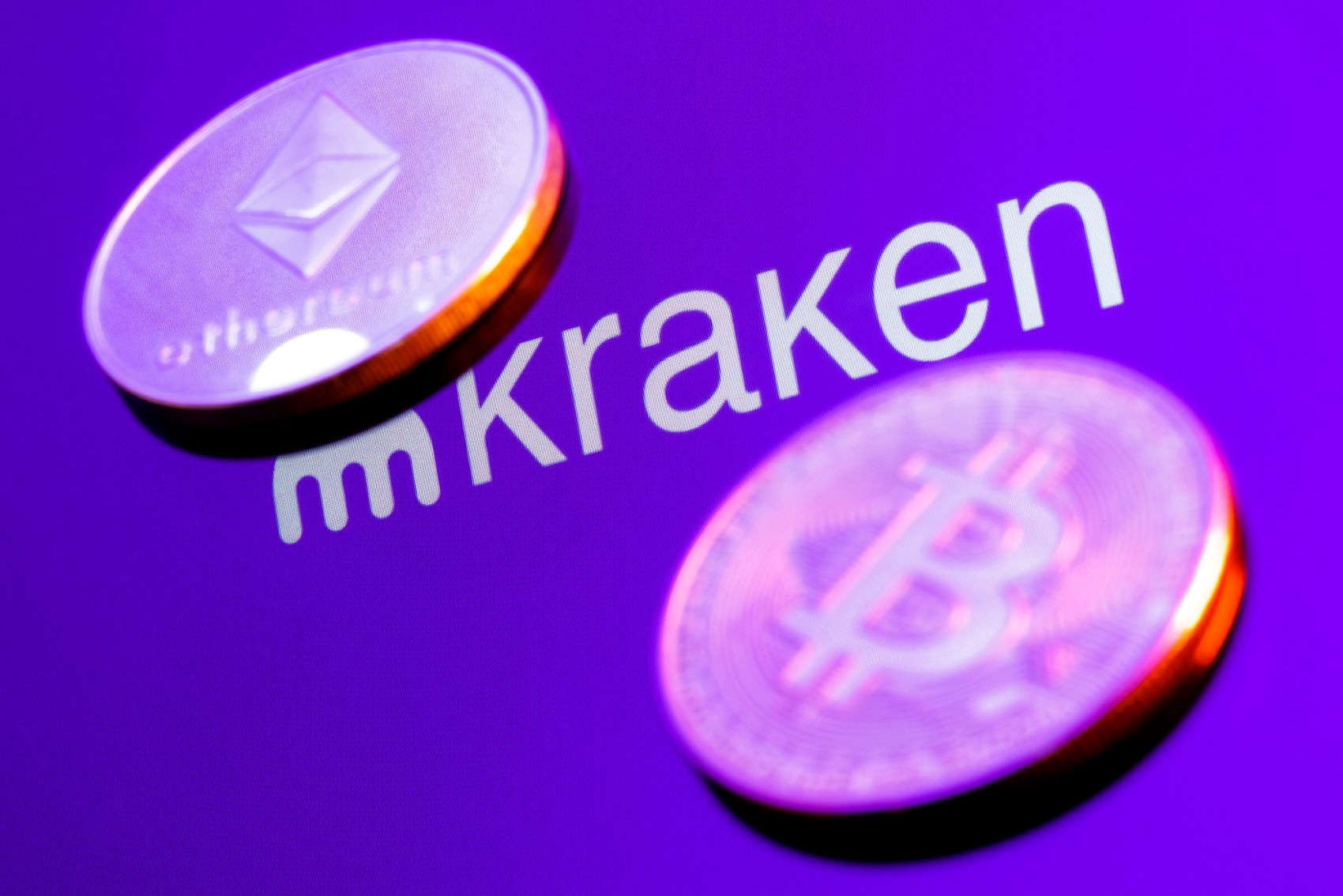JPMorgan and Coinbase are teaming up to make crypto more accessible to everyday bank customers. The two giants, one from Wall Street, the other from Silicon Valley, are launching a direct integration to enable 80 million Chase users to connect their bank accounts to Coinbase. The goal is to make it easier to buy crypto with Chase, use credit card rewards to obtain USDC, and manage digital assets without relying on third-party apps. It’s a big step toward bringing crypto into the mainstream banking experience.
Crypto Without the Extra Steps
Right now, moving money from a bank to a crypto exchange often involves clunky workarounds. Logging into aggregators like Plaid or manually transferring funds. This new JPMorgan Coinbase partnership will cut out the middlemen. Chase customers will be able to link their bank accounts and credit cards directly to their Coinbase wallets. That means fewer hoops to jump through when buying crypto. Besides, it also eliminates the risk of entrusting third-party services with sensitive banking data.
Customers will also be able to buy crypto with Chase debit or credit cards, making the process fast and familiar. And for those who prefer stablecoins, there’s a new perk: Chase credit card holders will soon be able to earn crypto rewards in USDC, turning traditional card perks into digital dollars.
This Coinbase bank integration is more than a convenience feature. It represents a structural shift in how crypto becomes part of mainstream financial services. By embedding wallet access and purchase mechanisms directly into the banking stack, JPMorgan and Coinbase are streamlining user experience while maintaining the rigor of traditional compliance standards.
>>> Read more: Jamie Dimon Greenlights Bitcoin Investment at JPMorgan
Bank-Grade Security, Crypto-Level Access
JPMorgan isn’t just dipping its toes into crypto. This integration is built from the ground up with bank-grade crypto compliance in mind. Unlike most fintechs that rely on open APIs and data-sharing platforms, JPMorgan is building these rails in-house. They don’t compromise on the tight security and full regulatory alignment.
That’s a big deal. It shows that one of the most established financial institutions in the U.S. is ready to treat digital assets as part of the banking ecosystem. It’s not something separate or fringe. Keeping everything under the bank’s compliance umbrella, this bank-to-crypto integration could become a blueprint for how other institutions enter the space.
What’s in It for Coinbase and JPMorgan
For Coinbase, this partnership is a huge win. Instead of relying solely on crypto-savvy early adopters, it now gets embedded access to JPMorgan’s vast customer base. That makes onboarding easier and potentially gives Coinbase a first-mover advantage when it comes to regulated, mainstream crypto access.
JPMorgan, on the other hand, stays ahead of the fintech curve. Offering features like Coinbase credit card crypto purchases, and Coinbase stablecoin rewards appeals to younger, digital-native consumers. At the same time, it opens new revenue streams. Reducing dependence on third-party tools like Plaid awards better control over the user experience.
Rolling Out in Phases
The rollout won’t happen all at once. JPMorgan and Coinbase say pilot programs will begin in late 2025, focusing on converting reward points into USDC first. After that, they’ll introduce direct wallet integrations and crypto purchases with Chase cards throughout 2026. The phased approach gives both companies time to refine the experience and ensure it meets regulatory standards.
What This Means for the Industry
The JPMorgan Coinbase partnership sends a strong message: crypto is no longer just a playground for startups. When one of the biggest U.S. banks builds a direct bridge to a major crypto exchange, it’s a sure signal that digital assets are becoming part of the financial mainstream.
This move could pressure other banks and fintechs to follow suit, or risk falling behind. It also raises questions about the future of aggregator platforms. Banks bringing crypto access in-house diminishes their role.
>>> Read more: RAKBANK Launches Crypto Trading with Bitpanda in UAE
Closing Thoughts
Is this the beginning of a new phase in digital finance? One where Crypto is no longer treated as a separate system, but simply as part of everyday banking? Through this partnership, JPMorgan and Coinbase are making it easier, safer, and more intuitive to move between dollars and crypto by linking Chase accounts directly to Coinbase.
The real test will come in 2026. But if this rollout goes as planned, JPMorgan and Coinbase might not just be streamlining crypto access. They could be redefining what it means to bank in the digital age.
Readers’ frequently asked questions
Will I need a new Coinbase account if I already use Chase?
No. Existing Coinbase users can link their Chase accounts once the integration goes live. New users will still need to create a Coinbase account to access crypto services.
Can I convert Chase credit card points into other cryptocurrencies besides USDC?
Initially, reward point conversions will be limited to USDC. Coinbase may allow users to swap USDC into other cryptocurrencies, but Chase points will not directly convert into Bitcoin or Ethereum at launch.
Will using this integration affect my bank fees or credit card terms?
JPMorgan has not announced any fee changes tied to the integration. Standard Coinbase trading fees will still apply when buying or selling crypto through the platform.
What Is In It For You? Action items you might want to consider
Link your Chase and Coinbase accounts when the rollout begins
If you’re a Chase customer already using Coinbase, watch for announcements in late 2025 or early 2026 and connect your accounts to streamline your crypto access.
Evaluate the benefits of USDC rewards over traditional point systems
With the option to redeem credit card rewards in USDC, consider whether a stablecoin-based rewards system aligns better with your financial goals or crypto strategy.
Monitor whether other banks or fintechs follow JPMorgan’s lead
This integration may trigger similar moves across the industry. If you’re using other financial services, keep an eye out for competitive offerings or crypto-enabled products.











[…] >>> Read more: JPMorgan Coinbase Partnership Brings Crypto to Chase […]